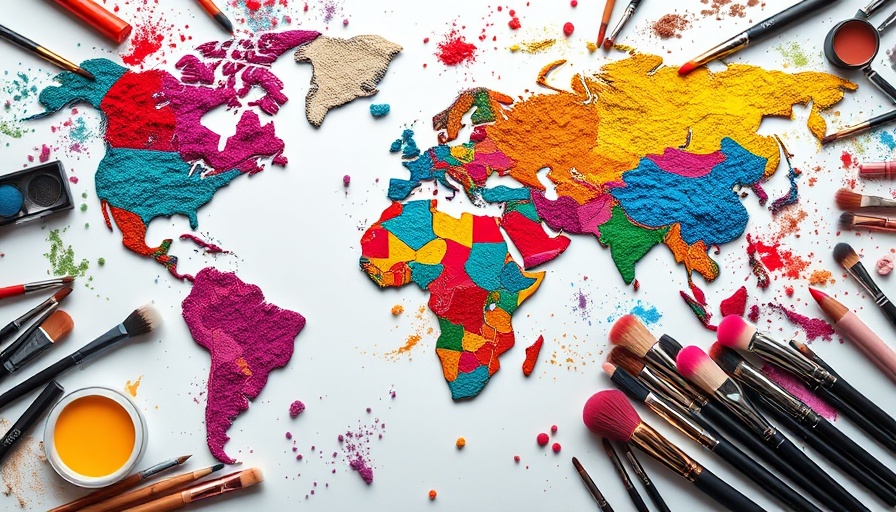
The Beauty Industry Adapts to Changing Landscapes
As the beauty industry faces the repercussions of rising tariffs, significant transformations are underway. Brands are re-evaluating their supply chains, production processes, and product sourcing to mitigate the impact on their bottom lines. The result is not merely a reaction to economic pressures but an opportunity for innovation and sustainability within the industry.
Why Tariffs Matter to Conscious Consumers
For conscious consumers, particularly women over 35 years old who prioritize ethical consumption, tariffs can be viewed through a multifaceted lens. These tariffs may raise product prices, but they also drive brands to adapt by sourcing ingredients more sustainably and ethically. Brands are now focusing on creating transparency about the origins of their ingredients and production practices, directly addressing consumer concerns about sustainability.
Creating a More Sustainable Future
In response to tariff-induced challenges, beauty brands are increasingly dedicated to sustainability. For instance, companies are investing in local production to reduce dependence on international suppliers and minimize carbon footprints. This shift not only lowers costs but also enhances the freshness and efficacy of products, giving consumers higher quality and better options.
Rethinking Brand Loyalty in a Changing Market
As the landscape shifts, brand loyalty is being tested. With consumers becoming more discerning, brands must demonstrate a clear commitment to both quality and ethical practices. Companies are employing new strategies to engage customers, such as transparency in pricing and educational campaigns about ingredient sourcing. This approach not only builds trust but also fosters a deeper connection between the brand and its consumers.
Future Predictions: What Lies Ahead
Looking ahead, the intersection of tariffs and consumer expectations will likely lead to an even greater emphasis on clean beauty. Expect brands to focus more on natural ingredients and eco-friendly packaging as a response not just to tariffs, but also to the growing demand for transparency and ethical practices. Such changes will not only respond to economic pressures but will also create a more equitable beauty landscape.
Take Action for a Greener Beauty Routine
Transitioning to a cleaner, more sustainable beauty routine doesn't have to wait for brands to catch up. Conscious consumers can take actionable steps today by seeking out brands that align with their values, prioritizing companies that embrace ethical sourcing and production methods. By choosing wisely, consumers can drive change within the industry, supporting practices that enhance both beauty and environmental integrity.
 Add Row
Add Row  Add
Add 




 Add Row
Add Row  Add
Add 

Write A Comment